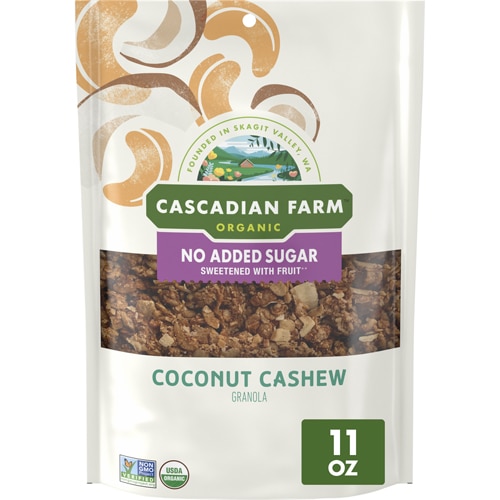[vc_row][vc_column][vc_column_text]For years, experts have said that eating ultra-processed foods is bad for your health. But that is not always true, according to a new report from the federal government.
In fact, it is possible to build a healthy diet where 91% of the calories come from ultra-processed foods, according to researchers at the USDA Agricultural Research Service's (ARS) Grand Forks Human Nutrition Research Center.

What are ultraprocessed foods?
Ultra-processed foods typically feature many added ingredients, including artificial colors, fat, preservatives, salt and sugar. Flavors, stabilizers and other additives also are often found in these foods.
Examples of ultra-processed foods include:
- Cakes
- Cold cuts
- Cookies
- Fast food
- Frozen meals
- Hot dogs
- Salty snacks
- Soft drinks
For the USDA report, researchers built a menu featuring breakfasts, lunches, dinners and snacks. They selected ultra-processed foods that have relatively low levels of saturated fats and added sugars, and that also contain important levels of micronutrients and macronutrients.
Such foods include:
The r
esearchers concluded that the menu they created met most of the thresholds for healthfulness, with the exceptions that sodium content remained high and whole grains were too low.
What nutritionists say about the ultraprocessed foods study
The notion that ultra-processed foods can be healthful should not be too surprising, says Leah Goebel, a registered dietitian nutritionist at
ThisIsWhyImFit.com.
She notes that although the study does not focus on the long-term health effects of an ultra-processed diet, it does show that you can still be compliant with the federal government’s
2020-2025 Dietary Guidelines for Americans while consuming convenience foods.
“Processed foods have for a long time gotten a bad reputation,’ she says. “I think this study is appropriately emphasizing that it is most important
what is in these processed foods, versus labeling them all as 'bad' and 'unhealthy.'”
Goebel notes that there are a growing number of food options – including vegetables, lean proteins and whole grains -- that would fall into the “ultra-processed” category, but that contain nutrient-dense ingredients.
“There are many reasons someone may turn to ultra-processed foods -- time, money,” she says. “While I wouldn't recommend it making up your entire diet, I don't think these need to be 'shamed' in terms of their nutrition content.”
Chelsey Kitazawa, a registered dietitian with
Bespoke Treatment, says the study findings might help promote “more realistic and sustainable diets” as interventions for those that need them, such as eating-disorder patients.
“Processed foods can certainly be addictively delicious, but they can also nourish,” she says. “I would never recommend them for the majority of a person’s diet, but they can still be eaten in a healthy way.”
Megan Wong, a registered dietician at
AlgaeCal, also says it is possible to incorporate some ultra-processed foods into your meals and still meet dietary guidelines.
However, she adds that healthy eating is about more than simply trying to meet the recommendations related to food groups, macronutrients, vitamins and minerals.
"It also includes limiting ingredients -- such as artificial additives, preservatives, artificial trans fats and more -- which are prevalent in ultra-processed foods," she says.
Adding ultraprocessed foods to a healthful diet
If you love ultra-processed foods but wish you could eat more healthfully, know that there are ways to strike a balance between eating these types of foods and eating more healthful foods.
“I think the best way to think about it is how to add nutrient-dense foods to your meals instead of thinking of what you should limit,” Goebel says. “For example, if you love boxed
macaroni and cheese, find ways to add healthy ingredients.”
This might include adding frozen steamed broccoli and lean chicken breast to your mac and cheese. Doing so will add more bulk -- allowing you to cut down on pasta portions – and important micronutrients.
“It will also add
fiber and
protein, which will help to keep you fuller for longer,” Goebel says. “So, ultra-processed foods don't always need to be the
only thing we are eating, but can be a good base when we are craving them.”
Kitazawa says opting for ultra-processed foods with shorter ingredient lists and recognizable ingredients can help “narrow your options and guide you to healthier choices.”
“You can incorporate ultra-processed meals into your diet while still satisfying your nutritional needs if you focus on ultra-processed foods that don’t have questionable ingredients such as artificial colors, preservatives or flavorings,” she says.
Wong agrees that it’s possible to eat healthfully when consuming ultra-processed foods as long as you are careful about the types of foods you choose and how often you eat them.
"Foods like nut butters, tofu, whole grains and canned vegetables can be regularly eaten as part of a healthy diet," she says. "However, foods like sugary breakfast cereals, deli meats, high-sodium soups and sugar-filled yogurt cups should only be enjoyed every once in a while."
If you decide to consume ultra-processed foods, try to choose items that are more healthful, Goebel says.
“Finding options that are lower in saturated fat, added sugars, and sodium may take a little extra work, but it can be done,” she says.
Meanwhile, Wong urges you to “try and balance out your grocery cart” by selecting two fresh-food equivalents for every item of processed foods that you select.
“When
grocery shopping, shop around the perimeter of the store, where you tend to find fresh foods,” she says. “Avoid the middle aisles that are often laden with processed foods.”[/vc_column_text][/vc_column][/vc_row][vc_row][vc_column][vc_text_separator title="Featured Products" border_width="2"][vc_row_inner equal_height="yes" content_placement="middle" gap="35"][vc_column_inner width="1/3"][vc_single_image image="168426" img_size="full" alignment="center" onclick="custom_link" img_link_target="_blank" css=".vc_custom_1692980457828{padding-right: 7% !important;padding-left: 7% !important;}" link="https://www.vitacost.com/simple-truth-freeze-dried-peaches"][/vc_column_inner][vc_column_inner width="1/3"][vc_single_image image="168425" img_size="full" alignment="center" onclick="custom_link" img_link_target="_blank" css=".vc_custom_1692980473421{padding-right: 7% !important;padding-left: 7% !important;}" link="https://www.vitacost.com/jacksons-sea-salt-sweet-potato-chips-in-avocado-oil"][/vc_column_inner][vc_column_inner width="1/3"][vc_single_image image="168424" img_size="full" alignment="center" onclick="custom_link" img_link_target="_blank" css=".vc_custom_1692980493546{padding-right: 7% !important;padding-left: 7% !important;}" link="https://www.vitacost.com/maranatha-organic-raw-almond-butter-creamy"][/vc_column_inner][/vc_row_inner][/vc_column][/vc_row]




